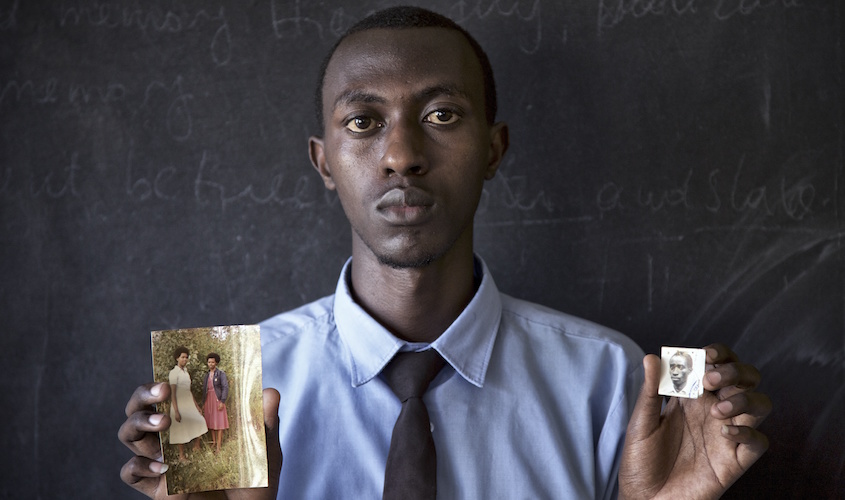Young people come together for peace in Rwanda
This week, Rwandans across the country will come together to mark the 24th anniversary of the Genocide against the Tutsi. The commemoration this year calls on all Rwandans to Remember, Unite, Renew.

Remembering and uniting to build a renewed life is also at the heart of the work International Alert does in Rwanda, particularly in our work with young people, who have grown up in the shadow of the genocide.
The devastating consequences of the 100-day genocide in 1994 which led to the deaths of more than one million people – mostly ethnic Tutsis and moderate Hutus – is likely to affect Rwandans for generations.
The genocide challenged social constructs, affected relationships and social cohesion. In its aftermath, survivors and perpetrators of violence have had to live together in the same communities. This has generally worked, but for some, living together has led to more trauma and frustration, hindering reconciliation and genuine healing.
The most affected group have been the youth. Many young people in Rwanda have grown up with the legacy of the genocide, shrouded in confusion, with their views mostly influenced by their parents.
If Rwanda is to achieve genuine reconciliation, it must find ways of addressing the psychosocial wounds and transgenerational trauma of its youth. Focusing on young people will help them redefine shattered relationships, and build a better future.
This is why International Alert’s Duhuze Rwanda project works with young people to build trust, and provides psychosocial support to promote an inclusive reconciliation process.
Dialogue is key to bridging differences and healing wounds. Through a combination of dialogue forums – permanent “hearing spaces” set up within the community– we bring together young people from families of genocide survivors, perpetrators, ex-combatants, and marginalized communities, to discuss the effects of the genocide.
For some, the trauma comes from the guilt of what their parents did. Others, whose families were victims, struggle with grief as opposed to shame and guilt. Regardless of their background, our forums provide a space for healing through dialogue and exchange, enabling reflections on ethnic difference, and improving social cohesion.
Arsene, a young man whose parents perpetrated violence against the Tutsis, had doubts about attending the dialogue session because of the guilt he felt about his parent’s role in the genocide.
“You can’t imagine how I feel when I meet the survivors. I carry my parents’ guilt. I can’t feel comfortable. I am always ashamed and afraid to even come close to them just because of what my father did,” he said.
After joining International Alert’s healing spaces, he was convinced that he should not carry the blame, because he simply did not have a hand in what happened. So, he started to open up, and talk about his feelings when he meets survivor participants. He feels freer to express himself and interact with others. In fact, he is always the first person to attend our dialogue meetings.
The programme has also trained trauma counsellors who facilitate therapeutic sessions for youth, which aim to counter the spread of poisonous narratives often acquired directly from parents.
The hope is that gradually, and as the forums continue to take effect, people will learn to accept one another, forgive each other and live happily side by side irrespective of Rwanda’s recent history. It is in this spirit that we endorse the theme of this year’s commemorations, to remember, unite and renew.
Unity and reconciliation can only be achieved through building trust and confidence among young people, who shape Rwanda’s future. As we commemorate 24 years since the Genocide against the Tutsi, let us celebrate the younger generation who are discarding the divisive narratives of the past and embracing peace for a better future.






